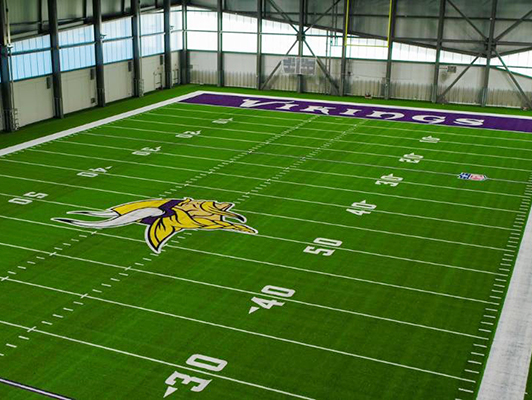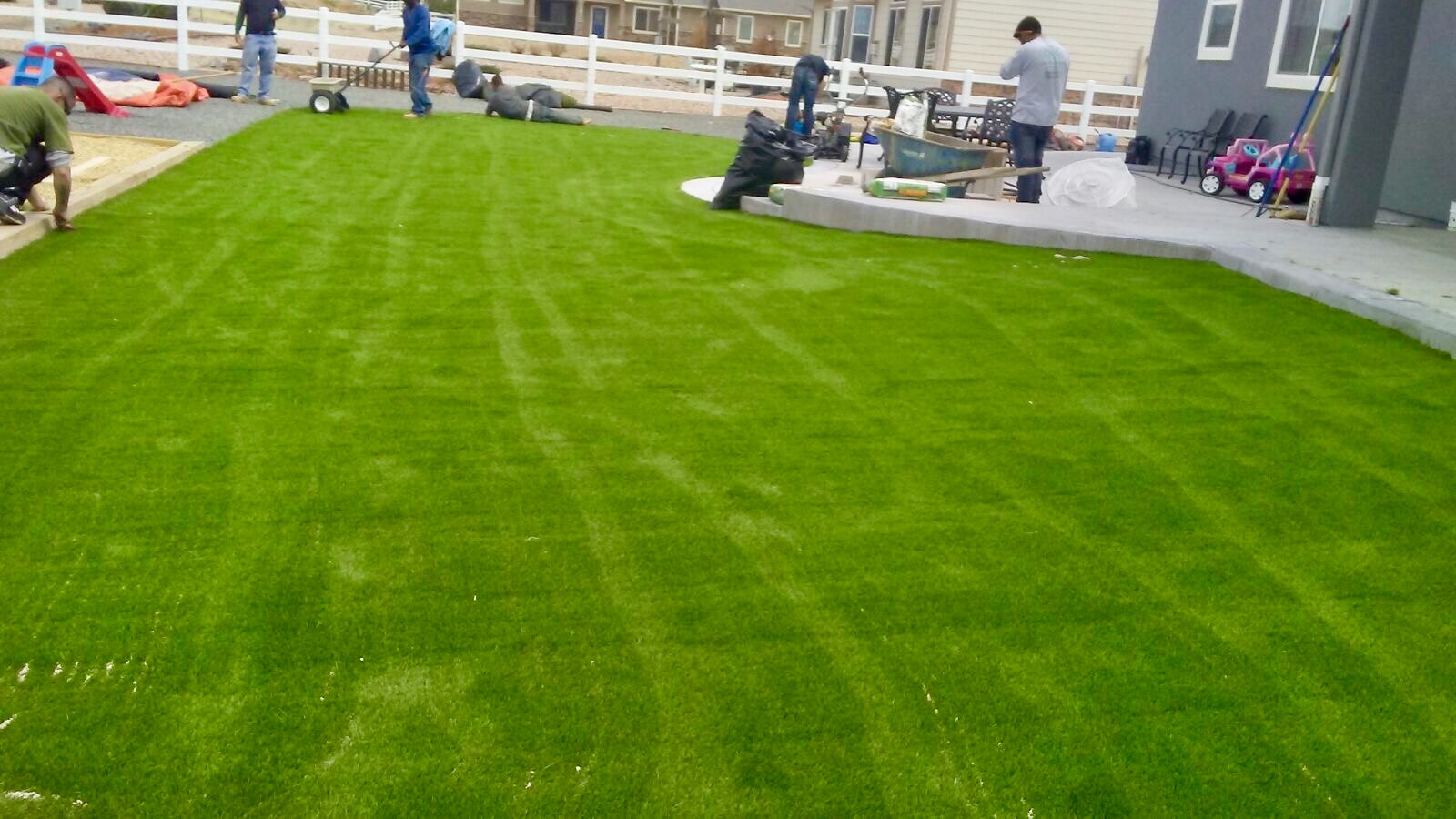Find Reputable Artificial Turf Companies Phoenix for Your Landscaping Needs
Find Reputable Artificial Turf Companies Phoenix for Your Landscaping Needs
Blog Article
Delve Into the Environmental Perks of Opting for Synthetic Grass Solutions
The adoption of artificial lawn options provides an engaging possibility to address pressing ecological difficulties. By significantly lowering water usage and decreasing the application of damaging chemicals, these alternatives not just promote sustainable landscaping but also safeguard regional ecological communities.
Water Conservation Conveniences
Among the most substantial advantages of artificial grass is its ability to preserve water. Typical lawn yards need significant irrigation, specifically in locations prone to drought or water limitations. On the other hand, synthetic grass does not require watering, substantially decreasing the general demand for water sources. This attribute is especially advantageous in arid areas where water scarcity is a pushing worry.
By removing the demand for regular watering, man-made grass adds to sustainable landscape techniques and helps alleviate the ecological impact of too much water usage. In addition, the preservation of water includes the reduction of overflow, which can lead to dirt erosion and waterway pollution.
Furthermore, the setup of fabricated grass permits property owners and districts to assign water resources much more successfully, concentrating on vital usages such as alcohol consumption water and farming. The change in the direction of synthetic grass not just advertises responsible water use yet likewise aligns with broader environmental goals focused on preserving natural deposits.
As communities progressively prioritize sustainability, the water preservation benefits of synthetic grass provide an engaging case for its fostering in domestic and business landscape design jobs.
Minimized Chemical Usage
The transition to synthetic grass dramatically decreases the dependence on chemical treatments typically utilized in all-natural turf maintenance. Typical turf monitoring generally involves the application of fertilizers, pesticides, and herbicides to advertise growth and control bugs. These chemicals can present dangers to human wellness, local wild animals, and the environment, adding to dirt and water contamination.
In contrast, artificial grass removes the requirement for these hazardous compounds. When installed, it calls for marginal maintenance, largely containing routine cleansing and seldom infill replenishment. This reduction in chemical use not just profits the prompt environment however additionally adds to broader ecological security. By minimizing the release of artificial substances right into the environment, fabricated turf promotes healthier soil and water systems.
Additionally, the absence of chemical drainage related to synthetic grass installments aids safeguard neighborhood waterways from pollution, sustaining water life and preserving biodiversity. Arizona artificial turf. As communities increasingly focus on lasting practices, selecting synthetic grass provides a practical solution that straightens with environmental preservation goals. Through this change, home proprietors can delight in lush environment-friendly spaces without jeopardizing eco-friendly wellness, paving the way for an extra sustainable future
Reduced Carbon Impact

Furthermore, the setup of synthetic grass can cause significant water conservation. All-natural grass require considerable quantities of water for watering, which not just contributes to the carbon footprint related to water extraction and therapy but also pressures regional water sources. On the other hand, synthetic grass needs very little upkeep, requiring no watering, therefore significantly reducing water use and its linked energy costs.
Additionally, the long life of man-made lawn adds to its lower carbon impact. With a life expectancy of up to 15 years or even more, the need for constant substitutes is diminished, resulting in much less waste and lower energy consumption in manufacturing and taking care of typical yard options. In general, fabricated turf offers a lasting choice for ecologically aware landscaping.
Habitat Preservation
Habitat conservation is an essential consideration in the dispute over landscape design options, especially when comparing synthetic grass to natural yard. All-natural turf yards frequently require substantial upkeep, consisting of using herbicides, pesticides, and plant foods, which can detrimentally influence regional ecosystems. more These chemicals can seep into the soil and waterways, damaging native vegetation and fauna and disrupting local environments.
Synthetic grass removes the demand for damaging chemicals, consequently securing here close-by wildlife and maintaining the stability of bordering ecological communities. The installation of fabricated grass can lead to the conversion of former turf areas right into even more biodiverse landscapes, such as pollinator yards or indigenous plant locations, which can sustain regional wild animals.
Inevitably, the transition to synthetic grass not just conserves water and reduces maintenance initiatives however additionally cultivates a more unified partnership between human tasks and the native environment, advertising environment preservation in the procedure.
Long-Term Sustainability
Lasting sustainability is a vital consider evaluating the benefits of synthetic lawn over conventional grass lawns. Among the most considerable advantages of man-made grass is its toughness; it can last as much as 15-20 years with minimal maintenance, whereas natural turf requires regular reseeding and replacement. This longevity minimizes the need for consistent resources, such as water, fertilizers, and chemicals, which are important for keeping a healthy yard lawn.
Additionally, synthetic grass adds to a decrease in carbon exhausts related to lawn care tools. Standard grass frequently need gas-powered lawn mowers, trimmers, and blowers, every one of which add to air contamination. Arizona turf. In comparison, synthetic grass removes the requirement for such devices, advertising a cleaner setting
Additionally, the production of synthetic grass increasingly uses recycled products, improving its sustainability find more info account. As producers take on green techniques, the ecological impact of synthetic grass remains to reduce.

Verdict
The fostering of fabricated grass remedies offers considerable ecological benefits, including substantial water conservation, lowered reliance on unsafe chemicals, and a lower carbon footprint. Man-made grass help in maintaining natural habitats by decreasing land disturbance and promoting long-term sustainability with the use of sturdy materials. Jointly, these aspects underscore the potential of synthetic grass to contribute positively to ecological health and supply a viable choice to conventional landscaping practices in a significantly resource-conscious globe.
In contrast, man-made grass does not require watering, considerably lowering the general demand for water resources. By decreasing the launch of artificial substances into the community, synthetic turf promotes healthier dirt and water systems.
In addition, the setup of artificial turf can result in considerable water conservation. In contrast, man-made turf needs marginal upkeep, calling for no watering, consequently considerably lowering water usage and its associated power expenses.

Report this page